第199章
They pushed at each other with their rostra, and clawed and thumped, apparently in the greatest rage, although their coats of mail must have saved both from injury. The small one, however, soon ran away, acknowledging himself vanquished. In most Coleoptera the female is larger than the male, and it is therefore interesting, as bearing on the question of sexual selection, that in this case, as in the stag-beetles where the males fight together, they should be not only better armed, but also much larger than the females. Just as we were going away, a handsome tree, allied to Erythrina, was in blossom, showing its masses of large crimson flowers scattered here and there about the forest. Could it have been seen from an elevation, it would have had a fine effect; from below I could only catch sight of masses of gorgeous colour in clusters and festoons overhead, about which flocks of blue and orange lories were fluttering and screaming.
A good many people died at Dobbo this season; I believe about twenty. They were buried in a little grove of Casuarinas behind my house. Among the traders was a. Mahometan priest, who superintended the funerals, which were very simple. The body was wrapped up in new white cotton cloth, and was carried on a bier to the grave. All the spectators sat down on the ground, and the priest chanted some verses from the Koran. The graves were fenced round with a slight bamboo railing, and a little carved wooden head-post was put to mark the spot. There was also in the village a small mosque, where every Friday the faithful went to pray.
This is probably more remote from Mecca than any other mosque in the world, and marks the farthest eastern extension of the Mahometan religion. The Chinese here, as elsewhere, showed their superior wealth and civilization by tombstones of solid granite brought from Singapore, with deeply-cut inscriptions, the characters of which are painted in red, blue, and gold. No people have more respect for the graves of their relations and friends than this strange, ubiquitous, money-getting people.
Soon after we had returned to Dobbo, my Macassar boy, Baderoon, took his wages and left me, because I scolded him for laziness.
He then occupied himself in gambling, and at first had some luck, and bought ornaments, and had plenty of money. Then his luck turned; he lost everything, borrowed money and lost that, and was obliged to become the slave of his creditor till he had worked out the debt. He was a quick and active lad when he pleased, but was apt to be idle, and had such an incorrigible propensity for gambling, that it will very likely lead to his becoming a slave for life.
The end of June was now approaching, the east monsoon had set in steadily, and in another week or two Dobbo would be deserted.
Preparations for departure were everywhere visible, and every sunny day (rather rare now) the streets were as crowded and as busy as beehives. Heaps of tripang were finally dried and packed up in sacks; mother-of-pearl shell, tied up with rattans into convenient bundles, was all day long being carried to the beach to be loaded; water-casks were filled, and cloths and mat-sails mended and strengthened for the run home before the strong east wind. Almost every day groups of natives arrived from the most distant parts of the islands, with cargoes of bananas and sugar-cane to exchange for tobacco, sago, bread, and other luxuries, before the general departure. The Chinamen killed their fat pig and made their parting feast, and kindly sent me some pork, and a basin of birds' nest stew, which had very little more taste than a dish of vermicelli. My boy Ali returned from Wanumbai, where Ihad sent him alone for a fortnight to buy Paradise birds and prepare the skins; he brought me sixteen glorious specimens, and had he not been very ill with fever and ague might have obtained twice the number. He had lived with the people whose house I had occupied, and it is a proof of their goodness, if fairly treated, that although he took with him a quantity of silver dollars to pay for the birds they caught, no attempt was made to rob him, which might have been done with the most perfect impunity. He was kindly treated when ill, and was brought back to me with the balance of the dollars he had not spent.
The Wanumbai people, like almost all the inhabitants of the Aru Islands, are perfect savages, and I saw no signs of any religion.